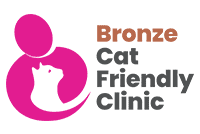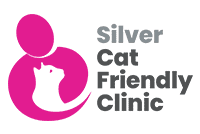Laparoscopy enables us to carryout minimally invasive surgery which results in a smaller wound with less trauma and pain. Patients tend to recover and get back to normal more quickly.
Shires Vets regularly undertake the following procedures:
- Spay-overiectomy
- Retained testicles
- Abdominal organ biopsy
- Bladder stones
- Internal foreign body removal
- Exploratory abdominal surgery
- Gastropexy
- Biopsy of internal organs e.g. liver
Key-hole surgery or laparoscopy (from the Greek ‘laparo-’ meaning ‘flank’ and ‘scopy’ indicating ‘observation’ or ‘examination’) has been around in the medical world for a long time. It involves the use of a rigid camera and long handled instruments that are placed through small holes or ports. It has revolutionised the experience of patients undergoing surgery both in terms of recovery and successful outcome.
Key-hole surgery has many advantages over conventional surgery. Firstly and most importantly, it allows us to perform many procedures through much smaller incisions than has previously been possible. This means that the patient can recover more quickly from the surgery and is in far less discomfort or pain.
Watch surgery examples: https://www.youtube.com/channel/UCNPPUV1CXN7CisGhMt-VbCw
Quicker recovery times
A routine bitch spay operation involves an incision along the middle of the abdomen. This incision typically needs 3 layers of sutures and skin sutures over the top. The animal must be kept rested and be prevented from jumping (as well as licking the incision) for a minimum or 10 days before the sutures can be removed. Most of us have experienced how difficult this is with a bouncy young animal! Furthermore, the animal has to be given drugs for pain relief throughout this period. Following a laparoscopic bitch spay, your dog has only 2 small incisions of approximately 5mm each. These are closed with tissue glue so there are no stitches. Although she may need to sleep off the anaesthetic that night as you would expect, she is likely to be back to normal the next day and does not need to be rested or given further pain relief.
Key-hole surgery is safer than conventional surgery.
One of the other main advantages is that in many ways key-hole surgery is safer than conventional surgery. This is because the surgical field of view is displayed on a large screen. This means that tiny blood vessels appear very large and any small areas of bleeding can be more easily identified and remedied. It also means that intricate procedures can be performed with much more precision.
Reduced risk of infection
A further advantage is that a smaller incision and less handling of internal organs means that infection risk is reduced. Also, less time spent closing large incisions reduces the time spent under anaesthesia which is hugely beneficial in those patients that are undergoing investigations due to illness e.g. those needing a liver biopsy.







